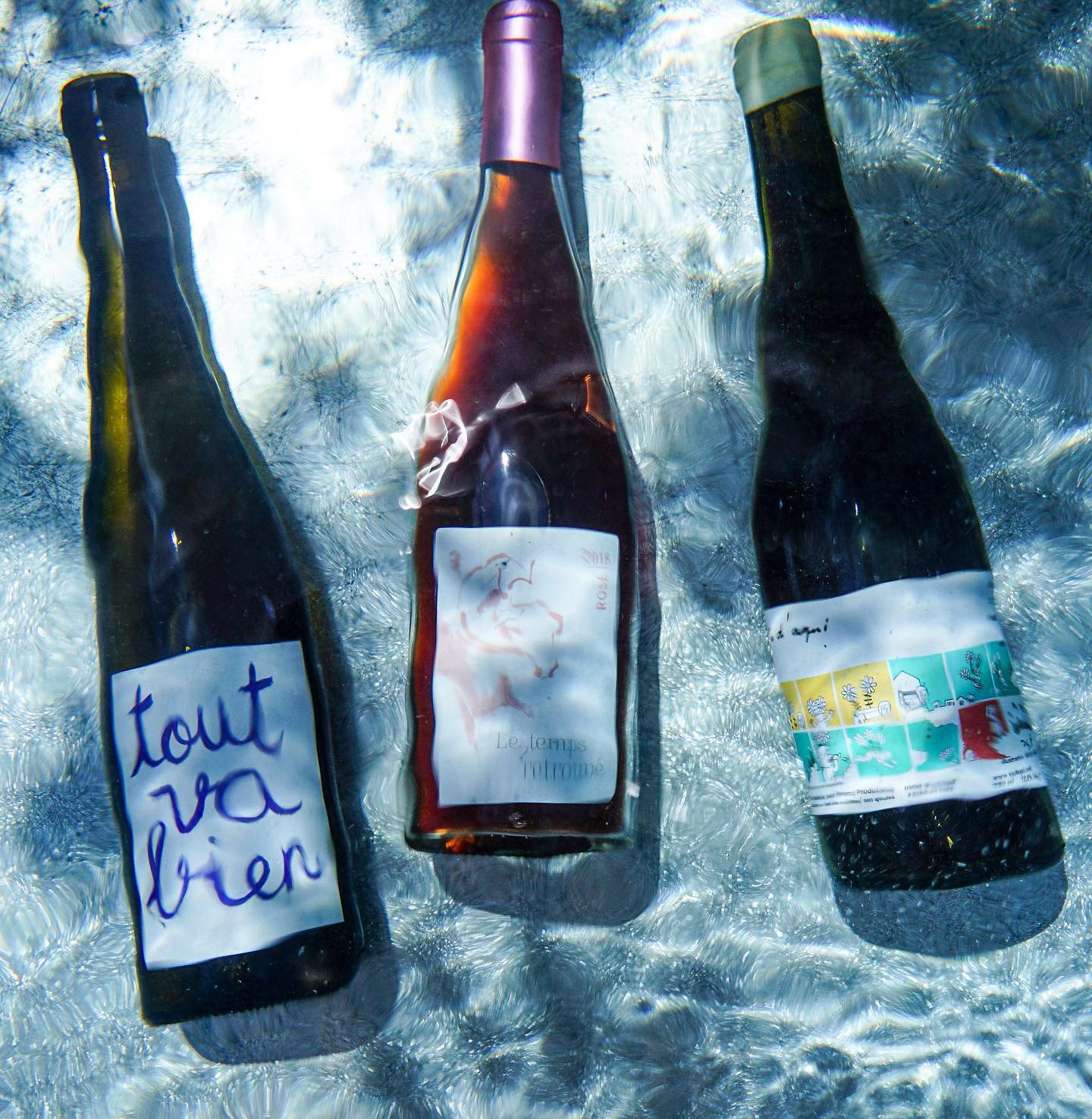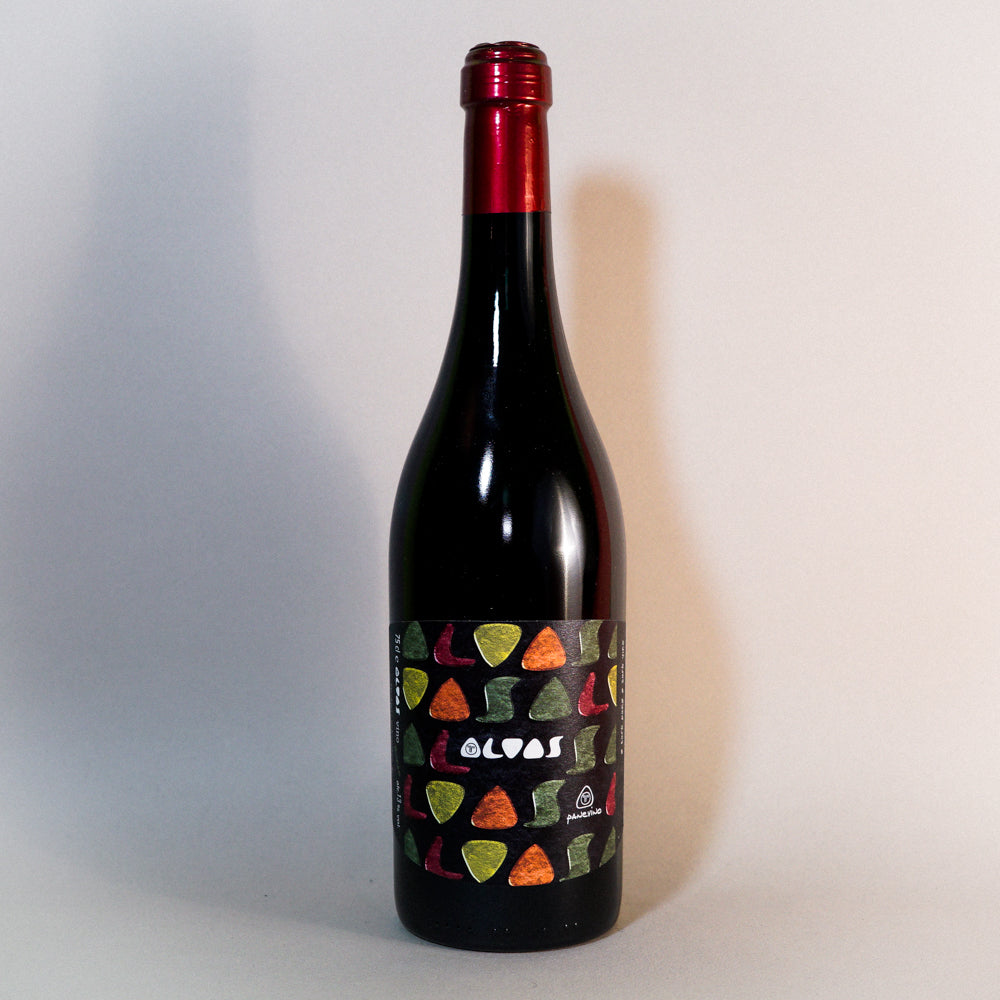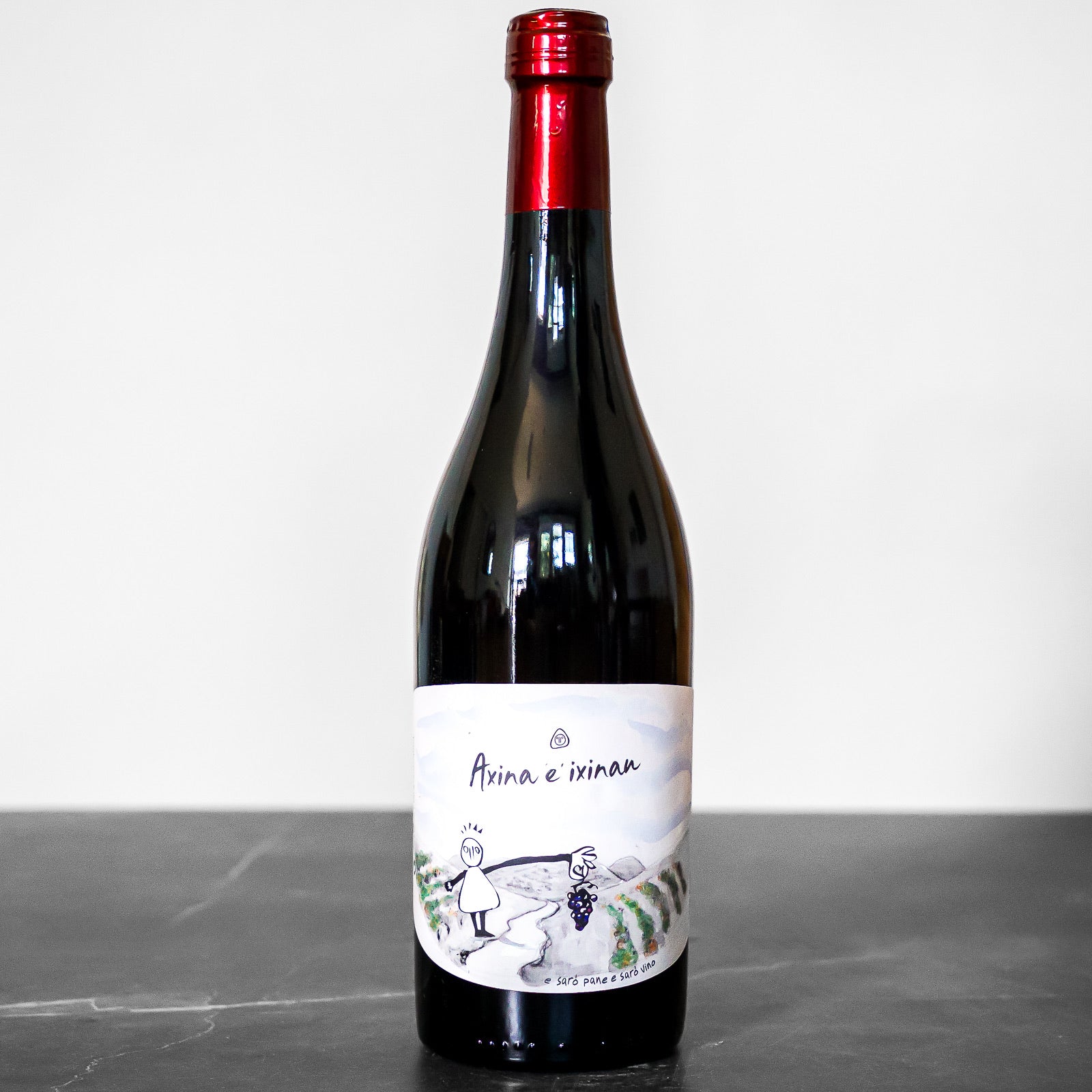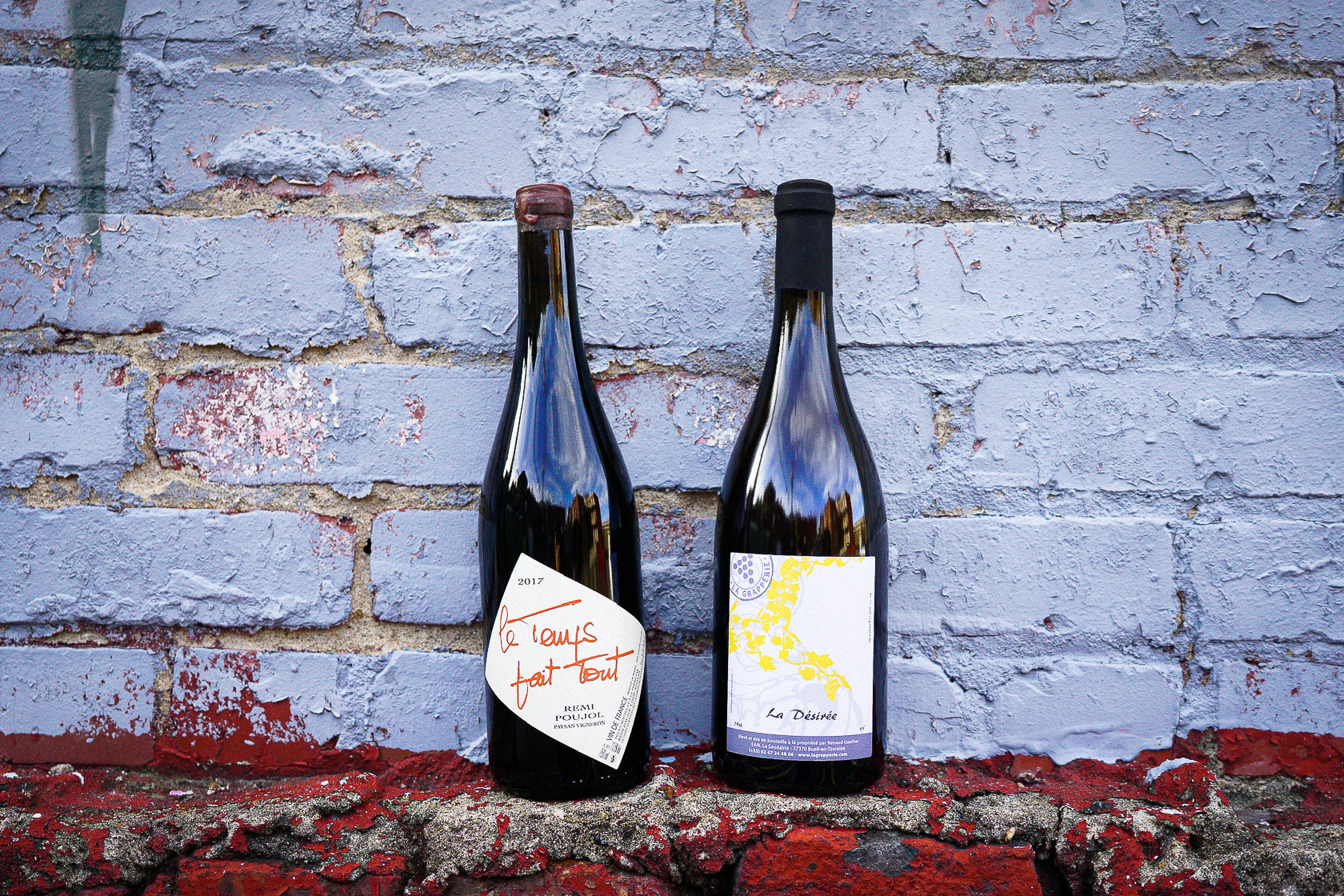Rét translates from Hungarian as grassland or field, since the land where these grapes grow used to be a pasture for feeding the livestock of the village.
Vineyard: Hutweide and Prädium plots on top of the Wagram-Plateau. Mostly sandy soil underneath a very thick layer of gravel, alluvial soil from the ancient Danube river. Healthy but poor and very dry and early-ripening. Planted 1988 – 2002, a total surface of 1.86 hectares.
Grapes: roughly 80% Rotburger (Zweigelt), 20% St. Laurent
Making of: The grapes are hand-harvested, destemmed, and fermented naturally on skins for 6 days. Pressed into stainless steel (Rotburger + St.Laurent) and large acacia vats (Rotburger), where they matured on gross lees for 7 months without any additives, without fining, and without filtration, or temperature control. Blended together shortly before bottling. Bottled unfined, unfiltered, no SO2 addition since the 2020 vintage.
A joyful celebration of Austrian red varietals and bright light style of red wines – fruity and spicy with great drinkability.
Koppitsch
Bottles of Koppitsch are ones that capture your attention right away, with their vivid labels and the juicy, easy-drinking wine inside. Just like the area where they’re born, the popular vacation spot of Lake Neusiedl, these wines ooze the lazy holiday vibe of days spent sun-lounging and boat- or bike-riding. “We want to make wines that bring you this kind of easy feeling of joy,” Maria nods, “that you can open anytime and they’ll always put a smile on your face.”
Similar to many other growers in our book, the Koppitschs’ journey wasn’t always this joyful. The present-day winery started with a complex post-war story, as Alex’s grandfather Leopold went missing during WW2, becoming a prisoner of war. As a trained baker and agriculturalist, his Russian captivators put him to use as a teacher in Moscow. When he finally managed to return home in 1947, he found the estate of his meanwhile-deceased father divided up among his nine siblings who, having had no contact with him for years, had considered him dead. Luckily for him, his mother kept a small field for herself, which he then turned into a mixed farm including a winery. The farm would mainly sell eggs–you can still spot a rusty metal sign with the inscription Frischer Eier (”Fresh Eggs” in German) outside the tractor shed–with wine in dopplers (the local slang for 2-liter bottles) only as an up-sell item.
The farm gradually added some vineyards here and there, building them up to their current 6.3 hectares, but kept things running in the same way, using the same old equipment and labor-intensive techniques. When young Alex, influenced by his conventional training in the nearby Eisenstadt wine school, wanted to try these modern methods in the family winery some twenty years ago, he was met with an impermeable “no” from his father. A hard thing to swallow for an ambitious youngster, but “I am now beyond grateful for the fact that the winery never went through a technological phase or used chemicals in the vineyards. The historical yeast population and all the old “rubbish” remained in the winery and we still use my grandfather’s tools for making wine, and will do so as long as they last,” Alex explains.
The young couple took the helm in 2011, when Alex felt it was time to start his own thing after spending five years as a winemaking and biodynamics assistant for Gerhard Pittnauer, another star winemaker in the area. Seeing that innovations and thinking outside the box pay off, Alex and Maria took the leap of faith, only to be met with… a steep decline of the family’s financial situation. With little kids to care for and similarly little income from their wines, which were quite different from what people would expect of Burgenland back then, Maria recalls how at one point they didn’t even have ten euros to fuel up their car. “But that’s OK—if things are too easy, they don’t really make you grow as a person. Everything Koppitsch is now stems from all these hardships. It also made us grow a lot as a couple; going and talking through all this together truly strengthened our bond,” Maria explained in an interview, with her typical humble acceptance of the things that life throws your way.
A bond it definitely is: these two strike you as the harmonious, “together-for-ages” couple, although they actually met when both were around their thirties in a local bar where “I think half the marriages in Neusiedl started,” Maria chuckles. And a rather rocket start it was: three months later she was pregnant, and their first son Jakob was born a day after the 1st anniversary of their bar encounter. To make things even more frenetic, all of this happened right around the same time they were taking over the winery. “I wouldn’t recommend this as a dating strategy to everybody,” Maria roars with laughter, “but luckily it worked for us.”
Besides their mutual respect and the will to fight through tough times together, the thing that tipped their fate, as the tale often goes, was a lucky encounter with the right person. In their case, it happened at the 2017 Weinsalon Naturel in Cologne, “one of the last fairs we decided to go to before I’d return to my accountant job in order to sustain the family,” Maria recalls how close they actually came to quitting the family winery idea altogether. Luckily for us natural wine lovers, David Ward of Ward&Associés, our Montreal colleagues, tasted their wines there, leading us to discover the couple soon thereafter. “I’m forever grateful for this trust that was put into us back then, as it became an inspiration for other markets that came to work with us afterwards. We could make all the wine we wanted, but really, there’s no way we could be living this dream without the people who buy and represent it,” she says solemnly.
To give credit where it’s due, the Koppitsches have worked very hard for this dream, and their wines have gotten better and better each year we’ve worked with them. Alex went through a phase of vinifying all of their plots and varietals separately, which, besides having their tiny cellar crammed with 24 different wines at one point, also led him to a close understanding of all the terroirs and grapes he had at hand. “And he became practically one with the vines, he lives and dies for them. He’d never let anybody else prune them, for example,” Maria describes while Alex shyly smiles next to her.
In line with this intimate relationship to the natural wealth of their vineyards, the couple has been delving deeper into biodynamics – Alex closely follows the biodynamic calendar, uses the preparations and herbal teas, and lets the soil live healthily under a permanent cover crop. Caring for vineyards in this way is very time-consuming, and the couple is only aided by Alex’s father and an occasional paid intern, which means the space for growth is very limited – and Maria seems quite happy with this. “Yes, we could sell more wine if we had more vineyards, but there’s no space for that in our current setting. We’re not chasing growth or profit; we live a good life. A modest one, but one that’s led on our own terms, connected to nature, without unlimited consumption, without any debts. And it’s this independent spirit that I want to hand over to our three sons rather than a fancy winery.”
This down-to-earth, humble and environmentally conscious approach also shows in their branding choices – well aware of the footprint of shipping natural wine around the globe, the Koppitsches try to lessen their impact on the environment by working on every detail, like using natural cork closures or the lightest bottles available. “We also opted for a one-piece-only label to cut out the hundreds of kilometers of plastic they’re stuck on, and a simple recycled paper cardboard box without any tape or print on it, even though it disqualifies us from the “who has the coolest packaging“ race,” Maria laughs. But, as the myriad of fans that their wine has amassed show, the Koppitsches are more than winning in a race of their own.
- Jenny & Francois Selections










